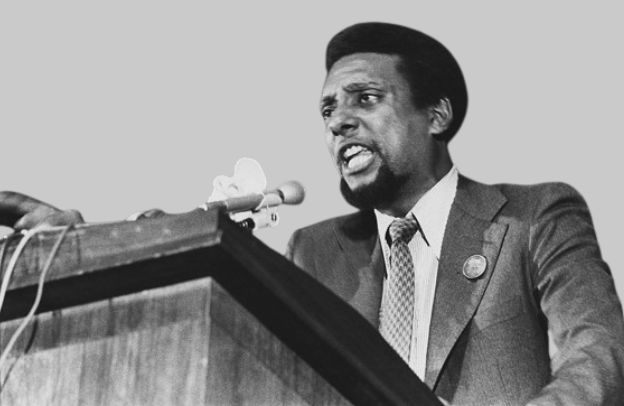Unleashing the Power Within: Ten Lessons from Kwame Ture for Today’s Activists

Want to unleash the Power Within you? Then pay attention to these ten lessons from Kwame Ture, an American organizer in the civil rights movement both in the United States and the global pan-African movement. Every time has its unique challenges and each challenge requires a different kind of leadership, but almost all the time, the valuable lesson we can pass on to others is perhaps the most important aspect of our existence.
Want to learn more about storytelling? Start by downloading the first chapter of The Storytelling Mastery.
What lesson can we learn from Kwame Ture today? Sit back and enjoy these powerful ten lessons and make sure to apply them in your life.
Who was Stokely Carmichael?
Stokely Carmichael, later known as Kwame Ture, was a Trinidadian-born civil rights activist who played a pivotal role in the 1960s American civil rights movement.
He moved to Harlem, New York, at the age of eleven and later attended Howard University, where his activism was ignited. Carmichael became a prominent leader in the Student Nonviolent Coordinating Committee (SNCC) and participated in the Freedom Rides, facing arrest and imprisonment for challenging segregation.
He famously coined the phrase “Black Power,” advocating for self-defense, racial pride, and economic and political empowerment for Black people.
Carmichael’s later years were dedicated to promoting Pan-Africanism and global liberation, inspiring future generations of activists through his unwavering commitment to justice and equality.
See also Celebrating African Diaspora Heritage: An Insightful Conversation with Loretta Green-Williams
People of the African diaspora should remember Stokely Carmichael today because he was a transformative figure who championed Black empowerment and global liberation. His fearless advocacy for civil rights, encapsulated in the rallying cry of “Black Power,” inspired a movement that emphasized self-determination, racial pride, and economic independence.
Carmichael’s international efforts to connect struggles against oppression worldwide highlight the importance of solidarity and collective action.
His life and legacy continue to inspire contemporary movements for racial justice, reminding us of the power of resilience, education, and unwavering commitment to equality and liberation for all oppressed peoples.
Lesson 1: Embrace Your Roots and Heritage
Stokely Carmichael’s journey from Trinidad to Harlem at a young age symbolizes the importance of understanding and embracing one’s heritage. He never forgot his Caribbean roots, which fueled his passion for activism.
See also Activism And Resilience in African American Society: Lessons From Wendell Pierce’s Journey
Today, embrace your own roots and cultural heritage. Understanding where you come from can provide strength and a sense of identity, which is crucial in overcoming challenges and making a positive impact on your community.
Lesson 2: Black Power: Self-Determination and Pride
Carmichael’s call for “Black Power” emphasized the need for self-defense, self-determination, and racial pride. This became a rallying cry for empowerment and resistance against oppression.
Stand proud of your identity and advocate for your rights. Cultivate economic independence, support Black-owned businesses, and participate in political processes to ensure your community’s needs are addressed.
Lesson 3: International Solidarity and Pan-Africanism
Carmichael’s travels across Africa, Asia, Latin America, and the Caribbean highlighted the interconnectedness of global struggles against oppression. He believed in Pan-Africanism and the power of international solidarity.
Foster solidarity with marginalized groups worldwide. Educate yourself about global issues, support international human rights organizations, and collaborate with activists across borders to amplify your impact.
Lesson 4: Education as a Tool for Liberation
Carmichael’s time at Howard University was pivotal in shaping his activism. His education equipped him with the knowledge and skills to fight for civil rights effectively.
Pursue education with the intent of using it as a tool for social change. Whether through formal schooling or self-education, knowledge empowers you to challenge injustices and contribute meaningfully to your community.
Lesson 5: Resilience in the Face of Adversity
Despite facing arrests, beatings, and constant threats, Carmichael remained steadfast in his activism. His resilience in the face of adversity is a testament to his unwavering commitment to justice.
Develop resilience by staying focused on your goals and not letting setbacks deter you. Understand that the path to justice is fraught with challenges, but perseverance is key to achieving meaningful change.
Lesson 6: Leadership Through Action
As a leader in SNCC and the Black Power movement, Carmichael led by example, often placing himself on the front lines of the struggle for civil rights. His leadership was characterized by direct action and fearless advocacy.
See also Growing Together: Building Community Through Collaborative Agribusiness Storytelling
Lead by example in your own community. Whether it’s through organizing events, participating in local government, or mentoring others, show through your actions what it means to be a dedicated and effective leader.
Lesson 7: Youthful Courage Can Change the World
At just nineteen, Carmichael took his first Freedom Ride and faced imprisonment for standing against racial segregation. His youthful courage showcased that age is no barrier to making a significant impact.
Young people today should recognize their potential to drive change. Whether it’s through social media activism, community service, or participating in protests, your voice and actions matter.
Lesson 8: Challenge the Status Quo
Carmichael’s shift from nonviolence to advocating for Black Power was a bold move that challenged established norms within the civil rights movement. He pushed boundaries to address systemic issues in a new way.
Don’t be afraid to question and challenge the status quo in your community or field. Innovation and progress often come from those willing to take risks and propose new solutions to persistent problems.
Lesson 9: Unity in Diversity
Carmichael’s work with diverse groups globally emphasized that unity among different oppressed groups is crucial for collective liberation. He believed in building alliances across racial and ethnic lines.
Promote unity and collaboration within diverse groups in your own community. Recognize that solidarity and mutual support among various marginalized communities can strengthen the fight for justice and equality.
Lesson 10: Speak Truth to Power
Throughout his life, Carmichael was unafraid to speak out against injustice, whether it was racial segregation in the United States or colonial oppression abroad. His fearless voice challenged those in power to reckon with their actions.
Always speak truth to power in your own life. Whether in the workplace, in social settings, or in public forums, use your voice to highlight injustices and hold those in power accountable for their actions.
Want to learn more about storytelling? Start by downloading the first chapter of The Storytelling Mastery.




